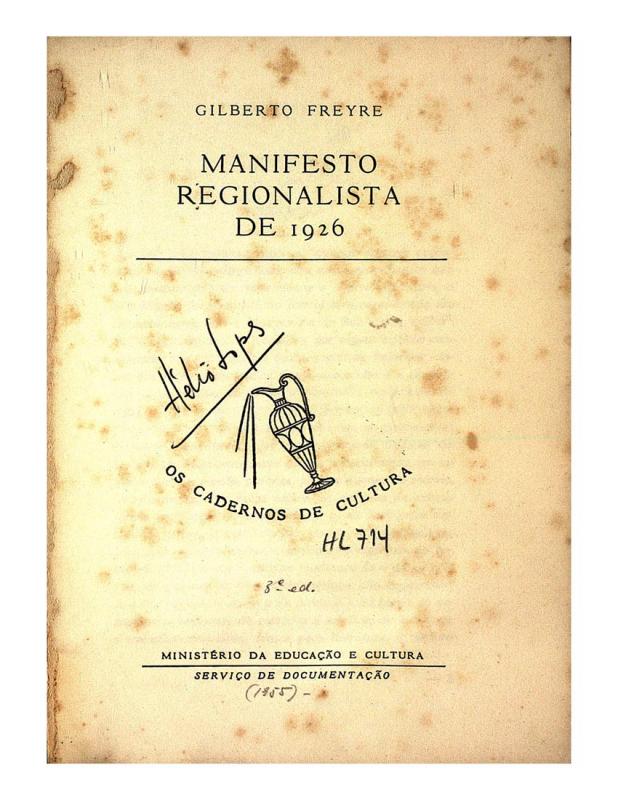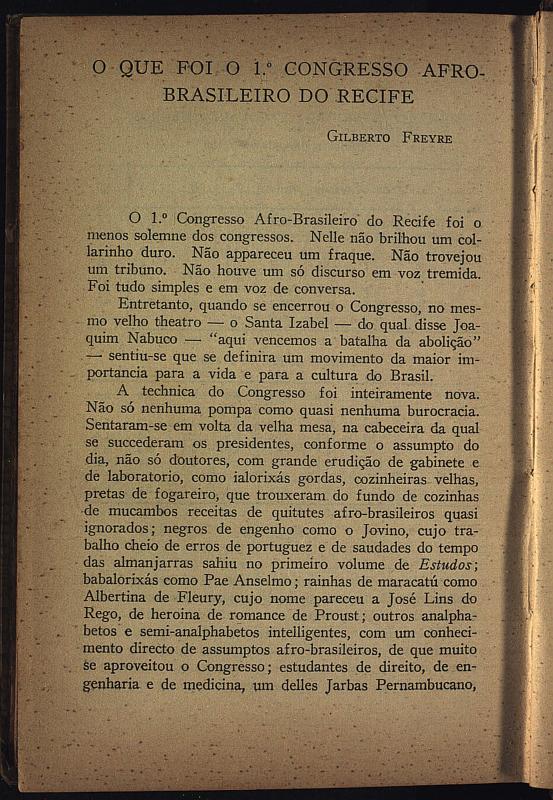For the past fifteen years, the sociologist, anthropologist, historian, writer, and journalist Gilberto [de Mello] Freyre (1900–87) had implicitly believed in the mobilizing power of conferences. In 1926, he organized the Primeiro Congresso Regionalista do Nordeste in his home town of Recife—see manifesto in [doc. no. 1074787]—where he defended certain aspects of the culture and customs of his native region in northeastern Brazil. The ideological subtext of the event was to discuss the problems that were being ignored by the great cultural and industrial centers of the country, which were obviously entirely focused on modernity and cosmopolitan matters. In 1934, in his home town, Freyre organized the I Congresso Afro-Brasileiro where he put the spotlight on the importance of the black culture in Brazil for the first time [see doc. no. 783512]. In this case, Freyre set aside the “African-Brazilian” problem and sought to reach out to Latin American countries with indigenous roots.
The much-anticipated conference organized by the Museu Nacional de Belas Artes in Rio de Janeiro was a follow-up to the Primer Congreso Indigenista Interamericano, held in Pátzcuaro (Michoacán, Mexico, 1940) under the auspices of the progressive Lázaro Cárdenas administration, at which Brazil was coincidentally not represented. It also coincided with another conference in the United States that was convened to study the problems of the Americas from the perspective of philosophical criteria.
This is the expanded text of the lecture Freyre gave at the Instituto de Cultura Uruguayo-Brasileño in Montevideo in December 1941. In a special UNESCO edition devoted to the problems of Latin America—“Americanidad y latinidad de la América Latina: creciente interpenetración y decreciente segregación,” Diogenes magazine, 42 (Paris, July–September, 1963, pp. 3−23), Freyre clarified the position he held two decades earlier.


